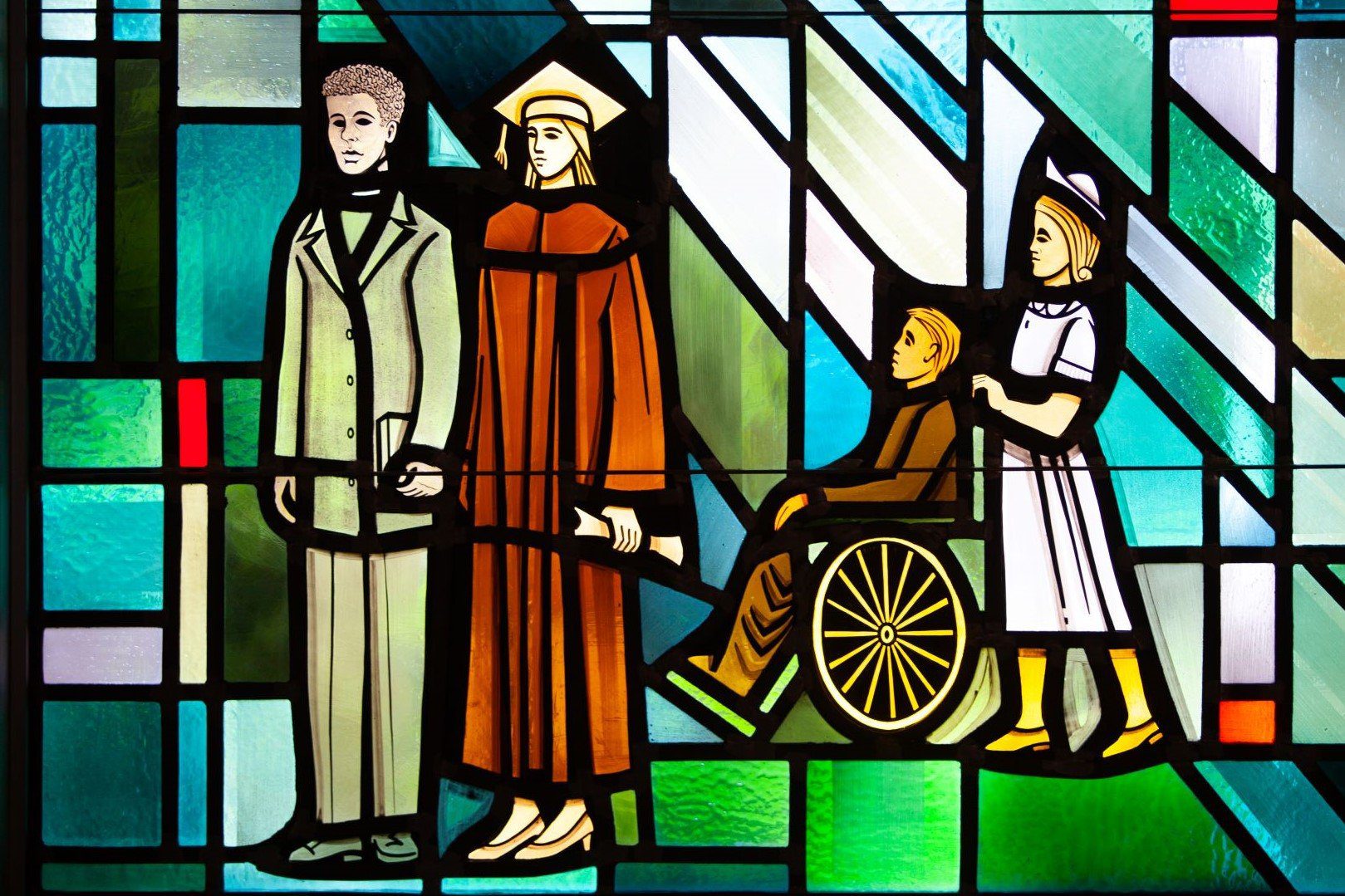
At Concordia, we believe that God is calling all of us to find our purpose in Him.
By Rev. Doug Bender, Associate Campus Pastor
Vocation is a word that gets used quite a bit at Concordia—it is part of the vocabulary that defines who we are and how we see ourselves as it comes to the life and work God has given to us. Whether you’re a student, staff member, faculty member, or those who call themselves a “child of God,” we want to help you find your vocation and live it out for God.
Letting God Lead
The word vocation comes from the Latin vocatio, which means “a call,” particularly to a role or station in life that we might feel led to, well-suited for, or—perhaps most importantly—a role that God is putting before us, by His ways and timing.
Martin Luther expanded on the notion of vocation to include all activities and professions that honored God. We honor God by being loving children, spouses, siblings, and parents. We honor God by being a good neighbor. A cobbler honors God by making excellent shoes, for the glory of God. Thus, vocation brings dignity and value to every task, every relationship.
In other words, vocations come in many shapes and sizes. It could be the career you’re working toward: doctor, nurse, social worker, programmer, and many others. It’s also the stay-at-home mom, the coffee barista, the caretaker for a loved one who needs extra help in their daily living. The beauty of vocation is that it’s how we view the many different facets of our lives—all of them entrusted to us by God, as extensions of His grace, and all are meant to be our opportunities to serve others and love our neighbors as ourselves.
Washing God’s Dishes
A great example of this idea is a 17th-century monk known as “Brother Lawrence.” This humble servant of God took his job as a monastery dishwasher and made it a shining example, to all who knew him, of the apostle Paul’s instruction in Colossians 3:23: “Whatever you do, work at it with all your heart, as working for the Lord, not for human masters.”
Reflecting on his own life and service to others, Paul wrote to the Corinthian church, “But by the grace of God I am what I am, and his grace toward me was not in vain. On the contrary, I worked harder than any of them, though it was not I, but the grace of God that is with me” (1 Cor. 15:10).
Sometimes it’s difficult for us to see certain aspects of our lives as callings from God. We get swept up in tedious details, repetitive routines, and the tyranny of the urgent. Sometimes parts of our lives feel more like a job than a calling. A “have to” rather than a “get to.” Whether we recognize it or not, we can lose sight of the purpose our work holds and struggle to see opportunities to serve God by serving others, especially when we are not in the most ideal situations of work or service. And yet, even in times like this, our understanding of vocation can still shine through.
Prisoners of Christ
Take Paul again, for example—he saw being held captive as a prisoner to his governing authorities as another opportunity to serve others and glorify God. He turned incarceration into a vocation! When he wrote to the Christians in Ephesus, he referred to himself as “a prisoner of Christ Jesus on behalf of you Gentiles” (Eph. 3:1).
Paul, quite literally, was prisoner to the Roman Empire. But even in this place in life, Paul didn’t bitterly blame God. He used this time to write letters to the Christian churches—the same letters and epistles that continue to offer us God’s Word of life, forgiveness, and salvation, found only in Christ. Even in a less than ideal work environment, God went to work through Paul in amazing ways!
This understanding of vocation is such a gift to us as God’s people. It means we can always look to God for the wisdom to use the gifts He’s given us, in order to be a blessing to the people He places in front of us. As fellow prisoners of Christ, we’re held captive by His love for us, and the joy in knowing there’s no job we could ever do that would cause Him to love us any more or any less. By Jesus’ death and resurrection, we’re set free! Free to love, to give, and to serve—all a response to God’s goodness.
A Community of Servant Hearts
And this is why I love Concordia! We have the opportunity to serve and care well for each other, every day. Even when conditions become challenging or not always ideal, God goes to work in this place—calling us up to share the amazing gift of life and grace He’s entrusted to us.
We get to see Jesus in every student, staff, and faculty member we pass in the hallways, and we get to show Jesus through our grace-filled interactions and conversations. While we’re a community made up of imperfect human beings, we’re held together by a perfect God, who tells us that His plans for us are meant for good.
And that’s a good call, Concordians. Let’s listen to that voice as we walk together, with hearts as one!
Doug Bender is associate campus pastor at Concordia University Wisconsin. If you have questions about this article, please feel free to contact him at douglas.bender@cuw.edu.
—
If this story has inspired you, why not explore how you can help further Concordia's mission through giving.